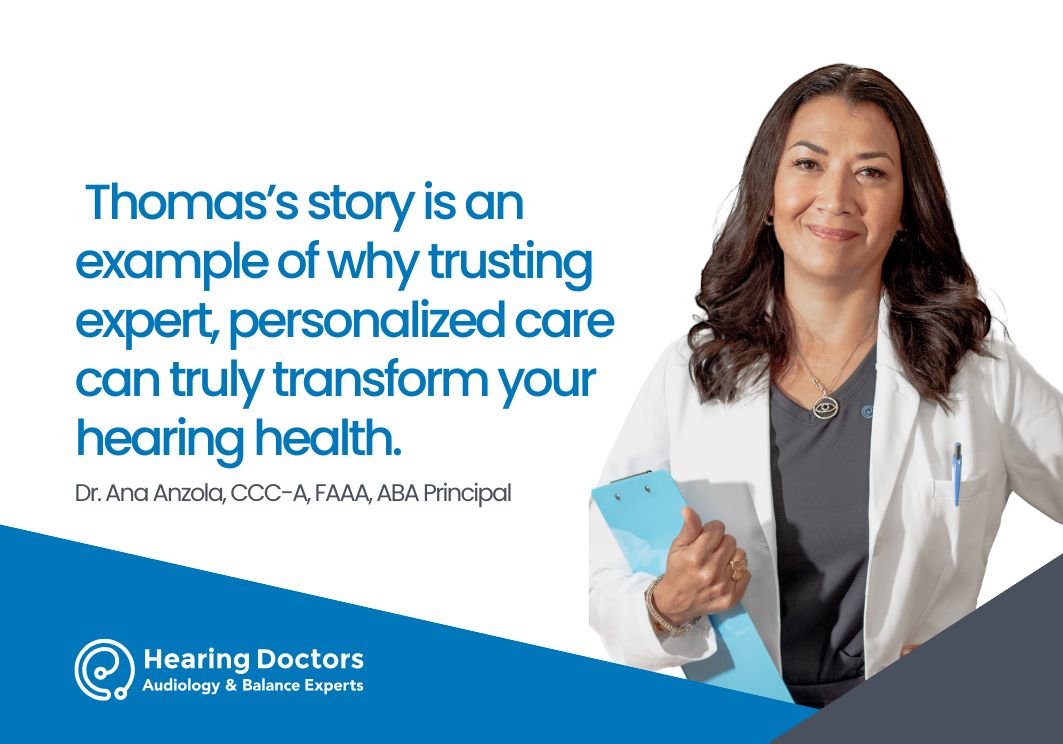Jan 11, 2016
Dr. Ana
Anzola, CCC-A, FAAA, ABA Principal
Roger* has been wearing receiver-in-the-canal (RIC) hearing aids for just a few weeks and has noticed a positive, drastic change in his ability to communicate effectively with his loved ones, especially his daughter. Unfortunately, Roger was recently diagnosed with cancer and will be beginning chemotherapy treatments soon.
Oncologist Didn’t Warn About Ototoxicity
When Roger told me (his audiologist) of his diagnosis, we began to discuss “ototoxicity” and how chemotherapy can affect the hearing and vestibular (i.e. balance) system. Roger had been educated extensively about chemotherapy and his form of cancer by his oncologist, but was never told about the permanent change it could have on his hearing.
What Is Ototoxicity?
Ototoxicity refers to any medication that damages hearing, causes dizziness, or both. There are many different forms of medications that can be ototoxic, such as cisplatin (chemotherapy), any antibiotics ending in -mycin (gentamycin, tobramycin, streptomycin to name a few), high doses of aspirin, and NSAIDs.
How Do Ototoxic Medications Affect Hearing And Balance?
Ototoxicity occurs when harmful medications build up in the inner ear and damage the cells within it; typically, the likelihood of damage increases as the buildup of medication increases in the bloodstream. The inner ear houses both the hearing and vestibular organs, which is why the -sometimes permanent-symptoms include muffled hearing (in one or both ears), dizziness, and tinnitus (in one or both ears).
What Can You Do?
If you are taking ototoxic medication, such as undergoing chemotherapy, it is important to notify your doctor/oncologist if there is any change in your hearing or balance. It is also important to notify your audiologist to have routine hearing evaluations to monitor your hearing and adjust your hearing aids, if needed.
Roger will be having hearing evaluations every 3-6 months throughout his chemotherapy treatments. It will be very important to monitor Roger’s hearing so he can easily communicate with his doctors, nurses, and family through his road to recovery.
--
*Name has been changed to protect patient’s identity
Popular Blogs

Feb 18, 2026
Dr. Ana
Anzola, CCC-A, FAAA, ABA Principal
Success With Hearing Aids: Mary’s Story

Jan 22, 2026
Dr. Ana
Anzola, CCC-A, FAAA, ABA Principal
Why Waiting on Hearing Loss Is the Biggest Mistake I See

Jan 19, 2026
Dr. Ana
Anzola, CCC-A, FAAA, ABA Principal
How Hearing Aids Improved Clarity and Transformed Shanna’s Daily Life

Dec 8, 2025
Dr. Ana
Anzola, CCC-A, FAAA, ABA Principal
Why Thomas Trusts Hearing Doctors: “Having Doctors Behind the Recommendations Matters”


